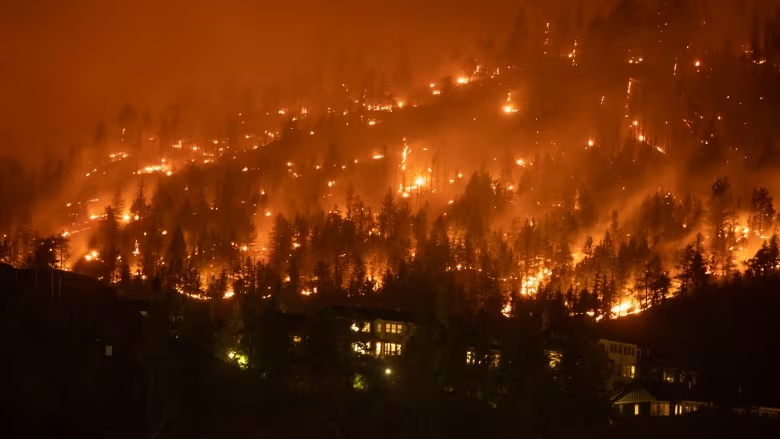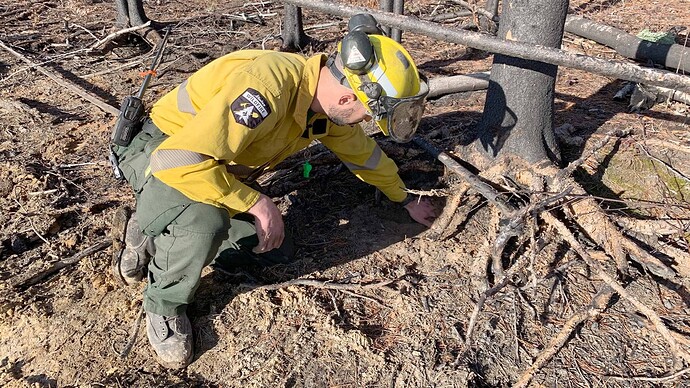Fire chiefs from across the country will be in Ottawa this week to warn the federal government that a shortage of staff, coordination and equipment will “severely impact” firefighters’ ability to deal with next year’s wildfire season.
“It’s not often that the fire chiefs sound the alarm,” Canadian Association of Fire Chiefs (CAFC) President Ken McMullen told CBC News. "We are very concerned about this impending crisis that the summer of 2024 and beyond is going to bring our sector.
“We’re just going to continue to ask more of fewer people and that’s going to come at a cost. It’s not sustainable.”
The 2023 wildfire season has been the worst in Canada’s recorded history; 18.5 million hectares have burned so far this year. The 10-year rolling average for wildfire damage is about 2.8 million hectares per year.
More than 40 fire chiefs are holding meetings with various government officials on Tuesday and Wednesday to press their case for more financial assistance.
The CAFC said that about 9,500 volunteer firefighters quit the sector in 2023. According to a CAFC census, there were about 126,000 firefighters in Canada in 2022, about 90,000 of them serving on a volunteer basis.
The CAFC said volunteer firefighters are poorly resourced and a little under a third of them report paying out of pocket for gear, equipment, tools, gas and other supplies.
“The summer of 2023 showed how much pressure we put on individuals … Burnout happens to be one of those often overused lines, but that’s simply what we’re hearing from our employees — it’s burnout,” McMullen said.
-
Canada reports worst wildfire season on record — and there’s more to come this fall
-
Ottawa could do more to equip volunteer crews to fight wildfires: firefighter association president
-
Five charts to help understand Canada’s record-breaking wildfire season
In the past, McMullen said, volunteer firefighters might have handled anywhere from a few dozen to more than 100 fire calls in a year. In 2023, he said, firefighters were asked to work for weeks and months on end — jeopardizing their full-time jobs and businesses and creating intolerable family stress.
CAFC is asking the federal government to increase the volunteer firefighter tax credit from $3,000 a year to $10,000 to attract volunteers. McMullen said chiefs also want to see more full-time firefighters hired.
Aging equipment, older workforce
The CAFC also said that about 30 per cent of all firefighters in Canada, or just over 38,000, are over the age of 50 and close to retirement, compared to just 31,000 in 2022.
That aging workforce is a growing problem, McMullen said, because most municipal insurance policies will not insure front line firefighters once they reach the age of 60.
“This is a very tell-tale sign that we have to do something to recruit and attract individuals both in the career sector as well as in our volunteer sector,” he said.
Watch: Crews watch for ‘zombie fires’ in Alberta:
Crews watch for ‘zombie fires’ in Alberta
7 days ago
Duration 2:06
After a busy wildfire season, crews in Alberta are on the lookout for holdover fires still smouldering in the peat underground. The so-called ‘zombie fires’ can spring back to life, even in winter.
The fire chiefs also say aging equipment is making their jobs harder and 54 per cent of Canada’s fire departments are delaying equipment purchases due to financial pressures. Roughly 41 per cent of fire departments reported deferring equipment purchases last year.
CAFC said about a quarter of Canada’s fire departments are using heat protective clothing and gear that is more than 10 years old and almost two-thirds of departments rely on pumper fire trucks that are more than 15 years old — their recommended end-of-use date.
Inflation acting as a drag on procurement
McMullen said pushing equipment beyond its recommended end-use date compromises firefighters’ ability to help Canadians caught in the path of wildfires.
“What’s most concerning on our apparatus is the cost of inflation,” he said. “We’re seeing about a 30 per cent cost increase on our fire apparatus.”
McMullen said municipalities make financial plans 10 and 20 years out based on forecast increases in the cost of equipment and the recent inflation trend has upended that planning process.
“Nobody would have ever imagined that we need to budget for 30 or 40 per cent inflation,” he said.
-
Trudeau says government should rethink infrastructure funding in wake of wildfires
-
Sajjan says Ottawa looking at disaster response options in wake of wildfires
CAFC said the Joint Emergency Preparedness Program (JEPP) — a federal program that provided provinces with money for various emergency initiatives from 1980 to 2013 — should be reinstated and modernized.
McMullen said chiefs across the country also want the federal government to establish a national fire administration, similar to the one in the United States, to better coordinate and manage firefighting responses across the country.

